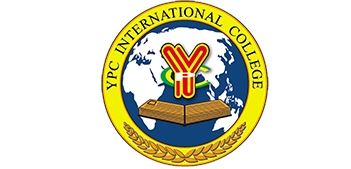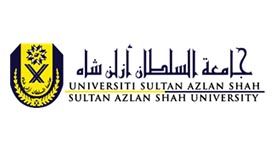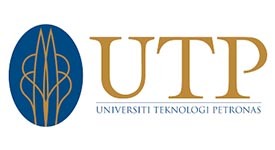Plant and Crop Sciences Course in Malaysia : Complete Guide for International Students

- Home
- Specialization
- Plant and Crop Sciences
About the Study Plant and Crop Sciences in Malaysia
The study of plant and crop science in Malaysia offers great opportunities for very enthusiastic students interested in agriculture and sustainable development. Malaysia gives the best plant and crop science courses offered at both undergraduate and postgraduate levels, letting students customize their education based on interest in areas such as crop management, biotechnology, and sustainable agriculture.
There are various colleges offering the Malaysia Plant and Crop Science degree program. The cost is RM 15,000 to RM 30,000 per annum. The programs are said to be less expensive as compared to most western countries. Malaysian universities have also gained recognition internationally: a number of them have ranked top in the best institutions in Asia.
With a graduation date in the future, students can count on competitive salaries, especially in the agricultural sector, where entry-level occupations come with RM 3,000-RM 5,000 monthly salaries. The multicultural and diverse academic setting in Malaysia is also highly accommodating and friendly to international students who undergo international exposure toward education and networking. With the study of Plant and Crop Science in agriculture, any student is well.
Why Study plant and crops Sciences in Malaysia
A tropical climate gives this country an extraordinary amount of biodiversity, allowing a tremendous diversity of plant species, hence enhancing the applicability of studies on plant and crop science in agriculture here. Known to lead in palm oil, rubber, and other tropical crops worldwide, Malaysia promises many opportunities for employment and specialization in graduates of plant and crop science. Demand for experts on sustainability agriculture and food security is increasing as issues relating to sustainability start becoming paramount. It opens up a useful career for eager professionals looking forward to doing their part towards sustainability as well as managing resources.
At such a young university offering degrees in plant and crop science, some research and development facilities are available: highly tech crop management systems which mean the latest innovation must put to hands-on experience the students. The institution of solid infrastructure offers room to explore local opportunities that involve shaping global solutions in light of mitigation of climate change as well as other areas pertaining to sustainability in food production among others.
International Students Studying Plant and Crop Science in Malaysia
- Multicultural Experience: Malaysia is known for its diverse culture, which is reflected in its academic institutions. International students studying Plant and Crop Science benefit from this multicultural environment, allowing them to collaborate with peers from various backgrounds.
- Affordable Living Costs: Compared to many Western countries, Malaysia offers a lower cost of living, making it an attractive option for international students. The affordability of accommodation, food, and transportation, along with high-quality education, adds to Malaysia's appeal.
- Support for International Students: Universities in Malaysia typically offer support services for international students, including orientation programs, student advisors, and visa assistance, ensuring a smooth transition into life in Malaysia.
- Career Opportunities: Graduates with a Plant and Crop Science degree have diverse career opportunities in agriculture, research, biotechnology, and environmental sustainability. Malaysia's growing agricultural sector provides a fertile ground for internships, research, and job placements after graduation.
Living Cost to study Plant and crop science course in Malaysia
| Category | Monthly Cost Range (RM) | Details |
|---|---|---|
| Accommodation | RM 500 - RM 1,500 | Costs vary depending on location and type (shared apartments, university dorms, private rental). |
| Food | RM 500 - RM 900 | Dining at local eateries is affordable; cooking at home can reduce this cost further. |
| Transportation | RM 80 - RM 150 | Public transportation (buses, trains), with student discounts available in some areas. |
| Wi-Fi/Internet | RM 100 - RM 200 | Internet costs depend on service providers and data plans for home or mobile Wi-Fi. |
Comparison of Agriculture Courses in Malaysia vs. the US and UK
| Factor | Malaysia | United States | United Kingdom |
|---|---|---|---|
| Tuition Fees (Annual) | $4,800 - $12,000 | $20,000 - $60,000 | $15,000 - $30,000 |
| Duration (Bachelor's) | 3 - 4 years | 4 years | 3 years |
| Living Costs (Monthly) | $200 - $500 | $800 - $1,500 | $1,000 - $1,500 |
| Total Estimated Cost (3-4 years) | $16,800 - $48,000 | $60,000 - $240,000 | $45,000 - $120,000 |
| Scholarships Available | Yes, various options | Yes, various options | Yes, various options |
| Language of Instruction | English | English | English |

Top university for plants and crops science in malaysia
- Universiti Malaya (UM)
- Universiti Putra Malaysia (UPM)
- Universiti Sains Malaysia (USM)
- Universiti Teknologi Malaysia
- Universiti Kebangsaan Malaysia (UKM)
Education level of Plant and Crops Science in Malaysia
- Diploma Programs: This program takes 2-3 years. Some knowledge related to agriculture and management of crops is provided to the students. The students are prepared for technical jobs.
- Bachelor's Degrees: It is an undergraduate training course that runs for 3-4 years. Plant physiology, soil science, pest management, etc., are dealt with in greater depth. The graduates can take entry-level positions in a number of sectors.
- Master's Degrees: This happens as specialized programs, usually 1-2 years long, allowing for specialization at the level of agronomy, plant breeding, or sustainable agriculture, which usually comes with some research components.
- PhD Programs: Advanced research in plant sciences is the core of these programs. These can last from 3 to 5 years and are prepared for careers in academia, research, or high-level industry roles.
| Program | Duration | Description |
|---|---|---|
| Diploma Programs | 2-3 years | Provides foundational knowledge in agriculture and crop management. Prepares students for technical jobs in agriculture. |
| Bachelor's Degrees | 3-4 years | Undergraduate program covering plant physiology, soil science, pest management, etc., in greater depth. Graduates qualify for entry-level roles in various sectors. |
| Master's Degrees | 1-2 years | Specialized program allowing for in-depth study in areas like agronomy, plant breeding, or sustainable agriculture. Often includes research components. |
| PhD Programs | 3-5 years | Focused on advanced research in plant sciences, preparing students for careers in academia, research, or senior industry roles. |
Diploma in Plant and Crop Science in Malaysia
Program Overview:
- The Diploma in Plant and Crop Science is a foundational program designed to provide students with practical knowledge and skills related to plant cultivation, crop management, and agricultural practices. The program covers essential areas such as crop production, plant physiology, pest management, and soil science. It aims to prepare students for entry-level roles in the agricultural sector, focusing on the technical aspects of plant and crop science that are needed to improve productivity and sustainability in agriculture.
Duration:
- Typically 2-3 years.
Tuition Fees:
- The tuition fees for a Diploma in Plant and Crop Science range from RM 12,000 to RM 25,000 for the entire program, depending on the institution (public or private).
Intakes:
- Common intake periods are March, May, August, and September, but exact dates may vary by university.
Entry Requirements:
- SPM (Sijil Pelajaran Malaysia): Minimum of 3 passes in relevant subjects (e.g., Science, Mathematics).
- O-Level: Minimum of 3 passes in subjects such as Biology, Chemistry, or Physics.
- STPM (Malaysian Higher School Certificate): Not typically required for diploma programs, but some universities may accept it.
- Foundation in Science or related fields: Some universities may accept students who have completed a foundation program in Science.
- English Proficiency: IELTS 5.0 or TOEFL 500 (if applicable).
Syllabus:
The syllabus of the Diploma in Plant and Crop Science generally includes both theoretical and practical components, focusing on core agricultural knowledge and skills.
1. Core Modules:
- Introduction to Plant Science
- Principles of Crop Production
- Soil Science and Fertility Management
- Crop Physiology and Growth
- Integrated Pest Management
- Agricultural Biotechnology
- Plant Nutrition and Fertilization
- Crop Protection and Disease Management
- Irrigation and Water Management
- Sustainable Agriculture Practices
2. Practical and Field Work:
- Practical sessions in laboratories and field studies, including hands-on experience in crop cultivation, pest management, and soil testing.
- Internship or industrial attachment with farms, agro-businesses, or agricultural research institutions.
Electives (Varies by Institution):
- Organic Farming
- Advanced Crop Protection
- Post-Harvest Technology
- Horticulture
Final Year Project:
- Students are typically required to complete a research project or a practical assignment related to plant and crop science.
Jobs for Diploma Holders:
Graduates of the Diploma in Plant and Crop Science can pursue various entry-level positions in agriculture and related sectors. Common job opportunities include:
- Agricultural Assistant: Assisting in the management and cultivation of crops, including planning and overseeing planting and harvesting.
- Farm Technician: Supporting farm operations, including soil management, crop irrigation, and pest control.
- Agricultural Laboratory Technician: Performing tests and analyses on soil, water, and crops to ensure optimal growing conditions.
- Crop Production Officer: Overseeing crop production on farms, ensuring quality control, and helping with the management of planting cycles.
- Plant Protection Officer: Implementing pest and disease management strategies to protect crops and ensure healthy production.
- Nursery Technician: Working in nurseries, managing plant propagation, and caring for young plants before they are moved to farms or gardens.
- Agricultural Extension Officer (Junior): Providing technical advice and training to farmers on crop management, pest control, and sustainable farming practices.
- Horticulture Technician: Specializing in the care of plants, fruits, and vegetables, either in commercial agriculture or for landscaping purposes.
- Soil Conservation Technician: Assisting in soil testing, analysis, and the implementation of soil conservation strategies.
- Agribusiness Support Staff: Working in agricultural supply companies, dealing with fertilizers, seeds, and other farming equipment.
Bachelor's Degrees in Plant and Crops Science in Malaysia
Program Overview:
- The Bachelor's Degree in Plant and Crop Science focuses on the scientific study of plant growth, development, and management. Students learn about crop production, plant biotechnology, pest management, soil science, and sustainable agricultural practices. The program is designed to equip students with the skills to manage and optimize crop production for various agricultural industries, both locally and globally.
Duration:
- Typically 3-4 years, depending on the university and the specific program structure.
Tuition Fees:
- The tuition fees for a Bachelor's in Plant and Crop Science in Malaysia can range from RM 20,000 to RM 50,000 for the entire program, depending on the university and whether it is a public or private institution.
Intakes:
- March and September intakes are common, but some universities may offer additional intake periods.
Entry Requirements:
- STPM (Malaysian Higher School Certificate): Minimum 2 principal passes in relevant subjects such as Biology, Chemistry, or Physics.
- A-Level: Minimum 2 passes in relevant subjects like Biology or Chemistry.
- Foundation in Science: Minimum CGPA of 2.0.
- Diploma in Agriculture or related fields: For students with a diploma, direct entry into the Bachelor's program may be possible depending on the institution.
- English Proficiency: IELTS 5.5 or TOEFL 550 (if applicable).
Syllabus:
The syllabus for a Bachelor's degree in Plant and Crop Science typically includes:
1. Core Modules:
- Principles of Crop Production
- Plant Biology and Genetics
- Soil Science and Fertility
- Crop Protection and Pest Management
- Agricultural Biotechnology
- Irrigation and Water Management
- Sustainable Agriculture
- Agricultural Economics and Policy
- Agricultural Machinery and Equipment
- Climate Change and Agriculture
2. Practical and Field Work:
- Hands-on experience in laboratories and farms.
- Internship or industrial training in agriculture-related industries.
3. Elective Modules (depending on the program):
- Organic Farming
- Advanced Plant Breeding
- Integrated Pest Management
- Crop Physiology
- Agricultural Extension Services
Final Year Project/Research:
- Students are typically required to undertake a final year research project in a specialized area of plant and crop science.
Jobs for Bachelor's Degree Holders:
Graduates with a Bachelor's degree in Plant and Crop Science can pursue a wide range of career paths in agriculture and related fields. Potential job roles include:
- Agronomist: Specializing in crop production, soil health, and sustainable farming practices.
- Crop Consultant: Providing expert advice to farmers or agricultural businesses on crop management and optimization.
- Plant Scientist/Researcher: Conducting research on crop genetics, plant breeding, or biotechnology.
- Farm Manager: Overseeing the operation of farms, including crop production and farm business management.
- Pest Management Specialist: Developing and implementing strategies to control pests and diseases in crops.
- Agricultural Extension Officer: Working with farmers to improve agricultural practices and provide training.
- Soil Scientist: Studying soil health and recommending solutions for improving soil quality for better crop production.
- Agricultural Entrepreneur: Starting a business related to crop production, agricultural products, or farm management.
- Agriculture Policy Advisor: Providing advice on agricultural policies, sustainable farming practices, and industry regulations.
- Quality Control Specialist: Ensuring crop products meet quality standards for market distribution.
Master’s Degrees in Plant and Crop Science in Malaysia
Program Overview:
- A Master’s Degree in Plant and Crop Science is an advanced program designed to provide in-depth knowledge and specialized skills in plant biology, crop management, and agricultural sustainability. This program is aimed at students who want to pursue leadership roles, engage in advanced research, or deepen their expertise in areas like crop production, biotechnology, pest management, and soil science. Graduates are prepared for careers in academia, research, agribusiness, or agricultural policy.
Duration:
- Typically 1-2 years (full-time), but may vary depending on whether the student is pursuing a research-based or coursework-based master's degree.
Tuition Fees:
- The tuition fees for a Master’s in Plant and Crop Science in Malaysia generally range from RM 20,000 to RM 40,000 for the entire program, depending on the university (public vs private) and the program format.
Intakes:
- Common intake periods are March, May, August, and September, though specific dates may vary by university.
Entry Requirements:
- Bachelor’s Degree in Agriculture, Plant Science, Horticulture, or a related field with a minimum CGPA of 2.75 or equivalent (some universities may accept a lower CGPA with work experience).
- Relevant Work Experience: Some universities may require relevant work experience in the agricultural sector or related industries.
- English Proficiency: IELTS 6.0 or TOEFL 550, or equivalent English language qualifications (for international students or those whose previous education was not in English).
Syllabus:
The syllabus for a Master’s Degree in Plant and Crop Science typically includes both advanced coursework and research components, depending on the type of program (coursework-based or research-based).
1. Core Modules:
- Advanced Crop Production
- Plant Biotechnology and Genetic Engineering
- Crop Physiology and Growth Regulation
- Soil Fertility and Plant Nutrition
- Integrated Pest Management (IPM)
- Sustainable Crop Management Practices
- Agricultural Water Management
- Advanced Agricultural Economics and Policy
- Soil and Plant Interaction
- Climate Change and Its Impact on Agriculture
Research Component (for Research-based Programs):
- Research Methodology
- Dissertation/Thesis on a specialized topic related to crop science, plant breeding, pest control, sustainable agriculture, etc.
- Field Research and Data Collection
Elective Modules (may include subjects like):
- Precision Agriculture and Technology
- Organic and Eco-Friendly Farming
- Post-Harvest Management
- Agri-Business Management
- Agronomic Crop Management
Final Year Project/Thesis:
- A significant research project or thesis is typically required for graduation. Students will conduct original research in a specialized area, under the guidance of a faculty advisor.
Jobs for Master’s Degree Holders:
Graduates with a Master’s in Plant and Crop Science can pursue various high-level careers in academia, research, agribusiness, and government sectors. Common job roles for holders include:
- Agricultural Researcher/Scientist: Leading research in crop genetics, plant breeding, pest management, or sustainable agriculture.
- Crop Production Manager: Managing large-scale crop production operations, focusing on optimizing yield, sustainability, and profitability.
- Plant Breeder: Developing new plant varieties with improved yield, pest resistance, or environmental resilience.
- Agronomist (Senior Level): Providing expertise in crop production, soil health, and environmental factors affecting agriculture.
- Agricultural Consultant: Offering specialized advice to farms, agricultural companies, or government agencies on crop management, pest control, and sustainability.
- Biotechnology Specialist: Working with plant biotechnology to develop genetically modified crops or new biotechnological applications for agriculture.
- Pest Management Specialist: Developing strategies to manage crop diseases, pests, and weeds in an environmentally sustainable manner.
- Soil Scientist (Senior Level): Analyzing soil quality and advising on soil management techniques for improved crop production.
- Agri-business Manager: Overseeing operations in agribusiness companies, including those involved in crop production, agrochemicals, equipment, or food processing.
- Sustainability and Environmental Manager: Managing projects that aim to make agriculture more sustainable and eco-friendly.
- University Lecturer/Academic: Teaching and conducting research in higher education institutions, training the next generation of agriculture professionals.
- Government Policy Advisor: Advising on agricultural policy, sustainable farming practices, and agricultural development programs.
- Agriculture Industry Analyst: Researching and analyzing market trends, consumer behavior, and agricultural policies affecting crop production and agribusiness.
PhD Programs in Plant and Crop Science in Malaysia
Program Overview:
- A PhD in Plant and Crop Science is a highly specialized research-focused program designed to provide students with the opportunity to engage in in-depth study and original research in the fields of plant biology, crop management, plant breeding, pest management, and sustainable agriculture. PhD students are expected to contribute new knowledge to the field of plant and crop science, often focusing on solving practical issues related to agricultural productivity, food security, and environmental sustainability. The program prepares students for leadership roles in academia, research institutions, and the agricultural industry.
Duration:
- 3-5 years (depending on the research topic, progress, and type of research conducted—full-time or part-time).
Tuition Fees:
- RM 20,000 to RM 50,000 (for the entire program), depending on the institution (public vs private) and the student's residency status (local or international).
Intakes:
- Most universities offer intakes in March, May, and September, but some institutions may offer rolling admissions for PhD programs.
Entry Requirements:
- Master's Degree in a related field (e.g., Plant Science, Agriculture, Horticulture, or Biotechnology) with a minimum CGPA of 3.0 or equivalent.
- Some universities may accept candidates with an outstanding Bachelor's degree in a relevant field (typically with a CGPA above 3.5) if they have an exceptional research proposal.
- Research Proposal: A well-developed research proposal outlining the intended area of research is typically required during the application process.
- English Proficiency: IELTS 6.0 or TOEFL 550, or equivalent (for international students or those who have not completed previous studies in English).
- Interview/Selection Process: Some universities may require an interview or additional screening based on the applicant's research interests and supervisor availability.
Syllabus:
- The PhD in Plant and Crop Science is largely research-based, with limited coursework required. The focus is on independent research, original contributions to the field, and the development of scientific writing and presentation skills. Below are the general components of the PhD program:
Core Components:
- Research Methodology: Introduction to advanced research methods, statistical analysis, and experimental design used in plant and crop science research.
- Literature Review: Extensive review of existing research and theory relevant to the student's research focus.
- Seminars/Workshops: Participation in seminars and workshops where students present their research progress, discuss findings, and receive feedback from faculty and peers.
Research Focus Areas (can vary based on the student’s chosen topic):
- Crop Production and Agronomy
- Plant Biotechnology and Genetic Engineering
- Plant Breeding and Genetic Improvement
- Pest and Disease Management
- Soil Fertility and Plant Nutrition
- Sustainable Agriculture and Environmental Impact
- Climate Change and Agriculture
- Irrigation and Water Management
- Organic Farming Systems
- Post-Harvest Technology and Crop Storage
Thesis/Dissertation:
- The most significant component of a PhD program is the thesis or dissertation, which requires students to conduct original research, analyze data, and present their findings. The thesis should make a unique contribution to the field of plant and crop science.
- Research may involve laboratory experiments, field trials, data collection from agricultural settings, or computational modeling.
Final Defense:
- At the end of the program, students must defend their thesis in front of a panel of academic experts in a viva voce (oral examination). This is where students present their research findings and answer questions from faculty members.
Jobs for PhD Holders:
Graduates with a PhD in Plant and Crop Science are highly sought after for leadership positions in research, academia, government, and the agricultural industry. Career paths include:
- University Professor/Researcher: Teaching and mentoring students at the undergraduate and graduate levels, conducting independent research, and publishing scientific papers.
- Agricultural Research Scientist: Leading and conducting advanced research on crop production, pest management, genetic modification, or sustainable farming practices.
- Crop Breeding Specialist: Researching and developing new, high-yield, disease-resistant, and climate-resilient crop varieties.
- Plant Biotechnology Expert: Working in biotechnology firms or research institutions, focusing on genetic engineering, plant tissue culture, and biotechnology applications for crop improvement.
- Agronomy Consultant (Senior): Providing expert advice to agricultural firms, government agencies, or NGOs on crop management, soil health, and sustainable practices.
- Agricultural Policy Advisor: Advising governmental or international organizations on agricultural policy, sustainability, and climate change adaptation strategies.
- Director of Agricultural Research Institutes: Leading public or private research institutions focusing on crop science, pest management, or sustainable agriculture.
- Pest Management and Crop Protection Specialist: Working with government agencies, international organizations, or private companies to develop and implement strategies for controlling pests and diseases in agriculture.
- Agricultural Technology Developer: Working with innovative technologies like precision farming, agricultural drones, or automated irrigation systems, focusing on improving crop productivity and sustainability.
- Sustainability and Environmental Consultant: Providing guidance on how to make agricultural systems more sustainable and environmentally friendly.
- Agri-business Executive/Director: Managing agribusiness operations, including crop production, agrochemical companies, food processing companies, or agricultural equipment firms.
- International Agricultural Development Expert: Working with international organizations (e.g., FAO, World Bank) on global agricultural development programs, focusing on food security, sustainable farming practices, and rural development.
Career Prospects of Plant and crops science in Malaysia
With a strong agricultural sector and changing outlook toward sustainability, the prospects of jobs offered to Plant and Crop Science graduates in Malaysia seem optimistic. Among the various fields where graduates may be employed include:
- Agronomy: Agronomists are recruited to improve crop yields and health of the soil.
- Research and Development: In universities or government agencies, research roles engage crop variety development as well as sustainable practices.
- Consulting: These specialists consult farms and agricultural businesses in regard to best practices and pest control.
- Food Production: Components of food processing, in terms of food safety and efficiency, are roles that these professionals undertake in ensuring that production processes are followed.
- Environmental Management: These professionals deal with agricultural matters that affect the environment, including land use and conservation.
An increased interest in climate change, the advancement of sustainable practices, and more concerns for food security would continue to increase the pay made to people serving in this field, as well as a chance to rise through one's respective profession.
Application Process for Plant and Crop Science Course in Malaysia
1. Choose a University and Course: Research universities in Malaysia offering Plant and Crop Science degrees at undergraduate or postgraduate levels.
2. Meet Entry Requirements: Ensure you meet the university’s academic and language proficiency requirements (usually IELTS/TOEFL for international students).
3. Submit an Application: Apply through the university’s online application portal. You’ll need to provide:
- Academic transcripts
- English language proficiency scores
- Passport copy
- Personal statement or motivation letter
Application Fees: Pay the required application fee, which ranges from RM 100 to RM 300, depending on the university.
Admission Decision: After processing your application, the university will notify you of the admission outcome, typically within 4-6 weeks.
Visa Process for Plant and Crop Science Course in Malaysia
1. Offer Letter: After receiving an offer of admission from a Malaysian university, you can begin your visa application process.
2. Apply for Student Visa: International students must apply for a student visa (also known as a Student Pass) through the Education Malaysia Global Services (EMGS) portal.
Documents needed:
- Offer letter from the university
- Passport-sized photos
- Health declaration form
- Copy of passport (valid for at least 18 months)
- Proof of financial stability
3. Visa Approval Letter (VAL): Once your application is approved, EMGS will issue a Visa Approval Letter (VAL).
4. Medical Check-Up: Upon arriving in Malaysia, you must complete a medical check-up at a registered clinic.
5. Student Pass Issuance: Submit your medical report to EMGS and the Immigration Department will issue your Student Pass, allowing you to study legally in Malaysia.
Application Timeline for plant and crop science in Malaysia
| Step | Timeline | Details |
|---|---|---|
| Research and Shortlist Courses | 6-12 Months Before Intake | Research the list of best Plant and Crop Science courses in Malaysia. Consider specializations in Plant and Crop Science in Agriculture. |
| Check Eligibility and Entrance Requirements | 5-6 Months Before Intake | Review admission criteria for Plant and Crop Science courses in Malaysia (e.g., pre-university qualifications, IELTS/TOEFL). |
| Prepare Documents and Apply | 3-4 Months Before Intake | Gather necessary documents like transcripts, personal statement, and apply online for the Plant and Crop Science degree in Malaysia. |
| Secure Funding and Scholarships | 3-4 Months Before Intake | Explore scholarship options for Plant and Crop Science courses in Malaysia (e.g., MARA, JPA). |
| Offer Letter and Visa Application | 2-3 Months Before Intake | Accept the offer, then apply for a student visa through the Malaysian Immigration Department. |
| Pre-departure and Arrival in Malaysia | 1 Month Before Intake | Prepare for departure by attending pre-departure briefings and securing accommodation. Register upon arrival. |
Scholarships for International Students in Plant and Crop Science
Graduate Scholarships
- Benefits: Full or partial tuition fee coverage, monthly living allowance, and accommodation support.
- Eligibility: International students applying for Master’s or PhD programs in plant science, crop management, or agricultural sciences.
- How to Apply: Submit application through the university's scholarship portal along with academic transcripts, research proposal (for PhD), and proof of English proficiency (IELTS/TOEFL).
Research Assistantships
- Benefits: Covers tuition fees and provides a monthly stipend for research work.
- Eligibility: International students enrolled in research-based Master’s or PhD programs in Plant and Crop Science or related fields.
- How to Apply: Apply after securing admission through the respective department, with required documentation.
Merit-Based Scholarships
- Benefits: Partial tuition fee waiver and living allowance.
- Eligibility: High-achieving international students with strong academic records in agriculture, plant science, or environmental sciences.
- How to Apply: Submit a scholarship application along with the university’s admission form.
Graduate Research Funding
- Benefits: Financial support for research activities, including project costs and living expenses.
- Eligibility: PhD candidates with approved research proposals in plant science, sustainable agriculture, pest management, or crop breeding.
- How to Apply: Submit a research proposal to the university’s faculty of agriculture or science.
Postgraduate Scholarships for Sustainable Agriculture
- Benefits: Full or partial tuition coverage and a living stipend.
- Eligibility: International students pursuing Master’s or PhD degrees with a focus on sustainable farming, crop management, or environmental conservation.
- How to Apply: Submit scholarship applications alongside graduate program applications.
International Scholarships for Agriculture and Plant Sciences
- Benefits: Full tuition fee waiver and monthly stipend for living costs.
- Eligibility: Open to international students applying for graduate-level programs in plant science, crop management, or related disciplines.
- How to Apply: Submit scholarship applications via the university’s official portal along with academic documents.










